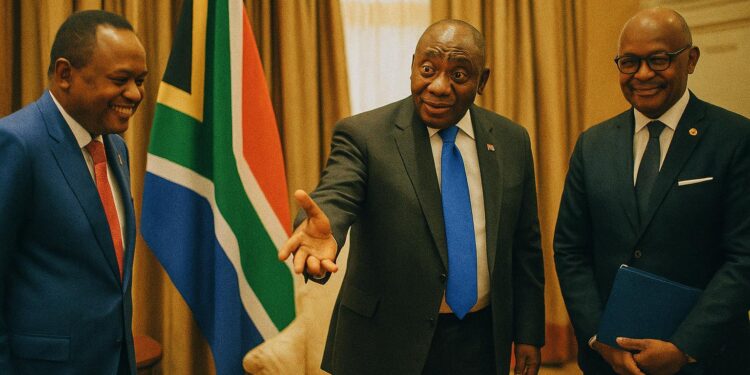Regional Lobbying Gains Momentum
A discreet yet determined Congolese delegation has been traversing Gaborone, Maputo, Harare and Windhoek since late July, meeting heads of state, foreign ministers and parliamentary leaders to advocate for Firmin Matoko in the run-up to the 2025 UNESCO Director-General election (Congolese MFA communiqué, 22 July 2024). The initiative, overseen by Minister of Foreign Affairs Jean-Claude Gakosso, underscores Brazzaville’s resolve to consolidate early support within the Southern African Development Community, whose sixteen votes can prove decisive in the first round of balloting at UNESCO’s Executive Board in Paris.
Firmin Matoko: Curriculum Vitae Tailored for Multilateralism
A graduate of the University of Ottawa and current UNESCO Assistant Director-General for Priority Africa and External Relations, Firmin Matoko embodies a blend of academic gravitas and bureaucratic experience that appeals to both francophone and anglophone constituencies. His tenure has seen the expansion of UNESCO’s Capacity-Building Programme for Teachers in Sahelian states and the launch of the Biennale of Luanda on the Culture of Peace, initiatives that feature prominently in Brazzaville’s talking points (UNESCO Press, 5 May 2024). Congolese envoys emphasise Matoko’s managerial reforms, including the adoption of performance-based budgeting, as proof of his readiness to steer the organisation through demanding fiscal and geopolitical headwinds.
SADC’s Weight in UNESCO Electoral Algebra
Although the Executive Board numbers only fifty-eight seats, voting blocs often crystallise along regional lines. SADC traditionally votes as a caucus on African candidacies, provided internal consensus is achieved, a norm established during the successful 1999 campaign of Koïchiro Matsuura when Zimbabwe shepherded a joint statement in his favour (African Union Archives, 2000). By courting capitals from Lusaka to Pretoria early in the cycle, Brazzaville hopes to pre-empt rival bids that may emerge from North or East Africa. Mozambican Foreign Minister Verónica Macamo described the Congolese démarche as “an invitation to strengthen Africa’s collective voice in global governance” during a press appearance in Maputo on 26 July.
Brazzaville’s Soft Power Playbook
Congo-Brazzaville has long balanced its modest economic footprint with an outsized cultural presence, from the Pan-African Music Festival to its stewardship of rainforest conservation projects. The current tour blends political consultation with cultural diplomacy: live rumba ensembles accompanied receptions in Windhoek, while Congolese contemporary art was showcased at the National Art Gallery in Harare. These touches complement technical pledges, such as scholarships for SADC students at Marien Ngouabi University and joint bids for World Heritage listings along the Zambezi corridor, thereby converting goodwill into concrete commitments.
Balancing Continental Interests and Global Expectations
The African Union is scheduled to formalise its single candidacy in early 2025, a mechanism designed to avoid vote-splitting that previously hindered the continent’s chances. Observers in Addis Ababa note that Egypt and Kenya have signalled exploratory interest, while Nigeria’s permanent delegation to UNESCO remains non-committal. Brazzaville is therefore careful to frame Matoko not merely as a Congolese figure but as a pan-African technocrat versed in Agenda 2063 and the UN Sustainable Development Goals. Diplomats interviewed in Pretoria view this positioning as a pragmatic attempt to reconcile sub-regional loyalties with the AU’s rotational principles.
Prospects toward the 2025 Ballot
With formal nominations opening in March 2025, the Congolese campaign remains in its formative stage, yet the early engagement in Southern Africa already differentiates Matoko from putative rivals. According to UNESCO insiders, first-round success typically requires a minimum of twenty vote pledges; Brazzaville claims to have secured “encouraging assurances” from at least ten SADC members as well as from São Tomé and Gabon, although no public endorsements have been issued. Paris-based analysts caution that shifting geopolitical tides—from debates over restitution of cultural artefacts to digital-platform regulation—could reshape the field. Still, the consensual profile of Matoko, coupled with Congo-Brazzaville’s calibrated diplomacy, positions him as a competitive contender as the international community anticipates a leadership transition at UNESCO.












































